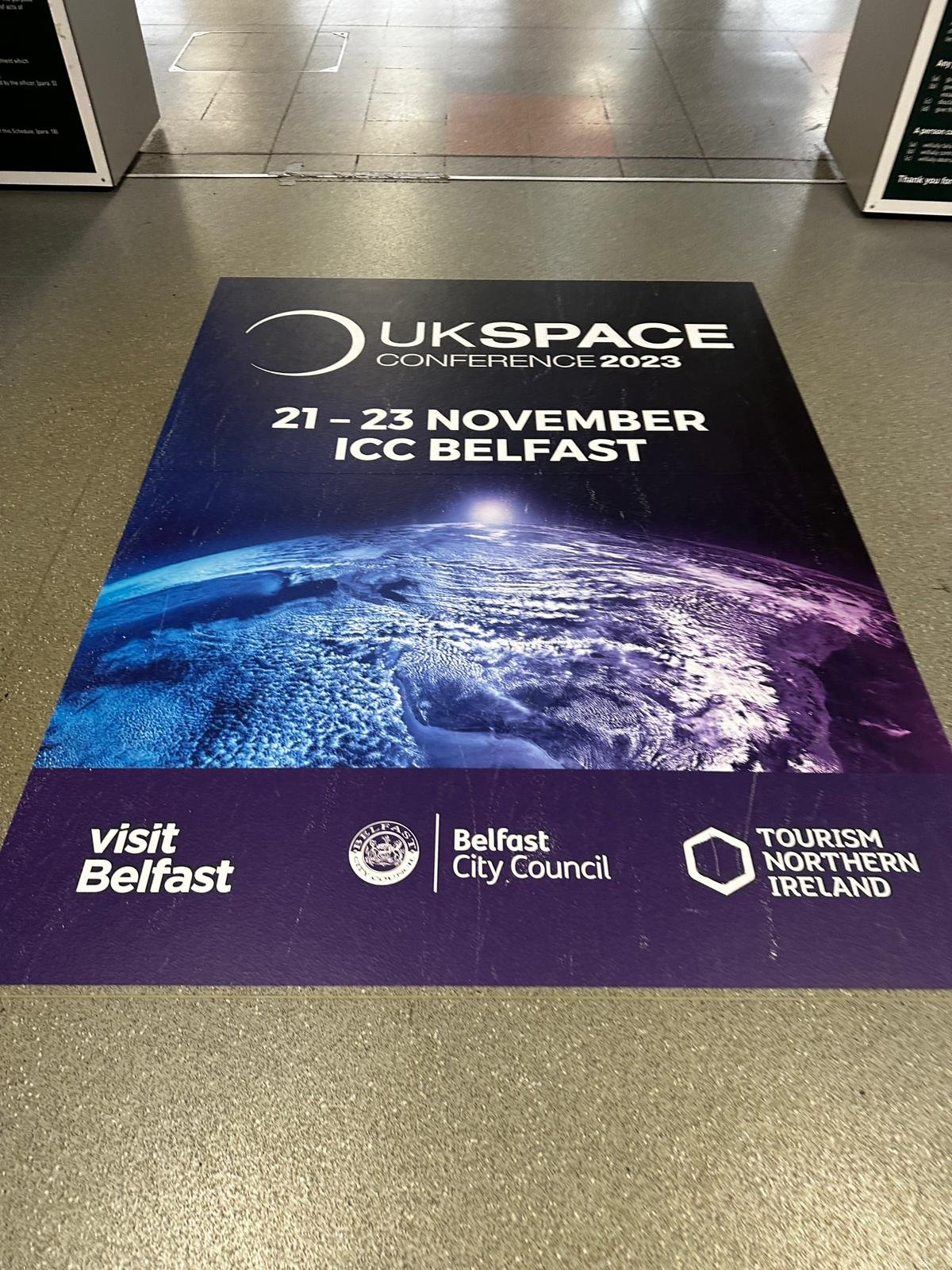Reflections on the 2023 UK Space Conference
November saw thousands of people descend on Belfast for the 2023 UK Space Conference. Our Director, Dr Louise Butt, looks back on the event.
The UK Space Conference (UKSC) is a biennial flagship event for the UK space industry, bringing together the entire space community, with delegates representing the government, business, academia, research and financial services. The conference offers unrivalled opportunities to meet, network, do business and shape the landscape for the coming years – and this year was no different.
My first space conference experience was back in 2019 in Newport, Wales, and I was stunned by the breadth of capabilities across the sector. A newbie to the space industry, the range of technologies and market opportunities was impressive. Four years later, and the first face-to-face UKSC since the pandemic, I returned with my team in tow.
After weeks of preparation, we arrived at Belfast International Airport with suitcases jammed with promotional material, company brochures and handfuls of merchandise. We were immediately greeted by bold signage promoting the event. This was going to be no ordinary conference!
Before entering full conference mode, we found time to meet up with our space cluster counterparts from across the UK. Despite our geographic spread and diverse makeup, the cluster teams work closely together, sharing knowledge, connecting expertise and revealing new opportunities.
On Tuesday, fuelled by Irish potato cakes, we reached Belfast’s International Convention Centre (ICC) early, prepared for a busy day of networking and meetings.
There was a rather different atmosphere at UKSC this time. The buzz of excitement was palpable. Our sector is growing at a remarkable pace, and the first day of talks and panels reflected that. Space-based solar power, the cis-lunar economy and in-situ resource utilisation are opportunities that now feel like they are within grasp…certainly within my lifetime.
I was delighted to later represent fellow UK space clusters on the Space Value Chains: Ensuring UK Resilience panel, which was organised by Stephanie Ayres, Public Affairs and Communications for The Aerospace Corporation. Chaired by Elizabeth Seward, Head of Space Strategy and Future Business at BAE Systems, I joined the Ministry of Defence’s Director General for Industry, Trade and Economic Security, Avril Jolliffe; Rebecca Evernden, Director for Space at the Department for Science, Innovation and Technology, and Anita Bernie, Managing Director of MDA to discuss the role of government, industry, academia and clusters to ensure the capabilities needed to deliver a resilient space future for the UK. It was incredible to have an all-female line-up on stage with some important messages around collaboration, contracts, dual-use and skills.
The Space Value Chains: Ensuring UK Resilience panel at the UK Space Conference: (L-R) Dr Louise Butt, Rebecca Evernden, Avril Jolliffe, Elizabeth Seward and Anita Bernie.
Without a moment to change, it was off to the Titanic Hotel for the Resonate Testing Dinner. A family-owned business, Resonate Testing provides fire, mechanical, and environmental test solutions and certification services for a wide range of industrial sectors, including space. Managing Director Tom Mallon and his team were exceptional hosts. Between live Irish music, traditional Irish dancing and a superb dinner, there was still plenty of time to talk shop and listen to keynote remarks from space leaders BAE System’s Elizabeth Seward and Andrew Stanniland, CEO of Thales Alenia Space’s UK operations.
The second day of the conference began with an early business breakfast hosted by the Satellite Applications Catapult. The UK space ecosystem has matured significantly this year with a £5.2 million funding boost from the UK Space Agency to support clusters and locally-led initiatives.
It was heartening to hear the UK Space Ageny’s CEO, Paul Bate, and the Satellite Applications Catapult’s CEO, John Abbott and Head of Regional Growth, Nafeesa Dadja, talk about the importance of a thriving and connected cluster network that delivers for industry and academic stakeholders. This was a message reinforced later in the day during the AstroAgency’s SPACEBAR LIVE event, which saw discussions around how local capabilities can ensure global competitiveness.
Paul Bate, UK Space Agency CEO.
This was also the day the UK Space Agency announced a £47 million investment in space-related infrastructure with the Space Clusters Infrastructure Fund. New space research, manufacturing and testing facilities across the UK will become available from March 2025.
Although weary, after another full day talking to national and international businesses, government agencies and a number of students, the team headed off to meet with colleagues from the Department for Business and Trade (DBT). Space South Central is unique as a cluster, having a dedicated International Partnerships Manager to provide hands-on support for import and export opportunities, overseas collaborations and potential inward investment opportunities – so an opportunity to meet with the DBT team in person was not to be missed!
Day three opened with a dedicated session called Leading with Pride: LGBTQ+ Journeys in Space. With standing-room-only, the panel shared candid stories on their personal and professional journeys in the space sector. Suffice to say, there is work to do, but we are on the right track to making the sector more diverse, supportive and inclusive.
Following a quick coffee, the UK Space Ecosystem team gathered for a photo opportunity. I don’t think I’ve met a more passionate, committed and well-connected bunch of people. From Belfast to Norwich and the Shetlands to Portsmouth, we’ve got you covered!
Before heading home, the Space South Central team also found time to develop a few collaborative R&D projects before bringing together the gang from our founding partner institutions, the universities of Portsmouth, Southampton and Surrey.
L-R: Space South Central’s International Partnerships Manager, Toby Marchant and Director, Dr Louise Butt; the University of Southampton’s Business Engagement Manager for Space, Frances Clarke; Dr Lucinda King from the University of Portsmouth’s Institute of Cosmology and Gravitation; and Professor Keith Ryden from Surrey Space Centre at the University of Surrey.
Now back in the Space South Central region, I’ve had time to reflect on our time in Belfast. My main takeaway? Our sector is evolving at pace – probably quicker than we realise – but we must build the right partnerships and harness talent now to realise the full future potential of space. Collaboration between companies, clusters, sectors, agencies, and nations is critical for success.





